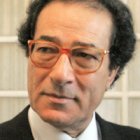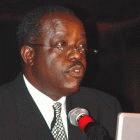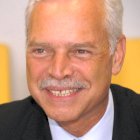By: Yojana Sharma
Send to a friend
The details you provide on this page will not be used to send unsolicited email, and will not be sold to a 3rd party. See privacy policy.
UNESCO headquarters in Paris is abuzz with talk about who will become the new director-general when Japan‘s Koïchiro Matsuura bows out in October, after ten years in charge.
Diplomats and politicians from Algeria, Bulgaria, Ecuador, Egypt and Lithuania have already declared themselves. Nominations close on 31 May and governments vote in October.
It is increasingly important for UNESCO to improve its poor handling of science, which receives the largest slice of money but gets a lower profile than education and culture, say commentators. But it seems unlikely that this is uppermost in the candidates’ minds.
UNESCO, the UNs’ Educational, Scientific and Cultural Organisation, works to protect cultural treasures; supports developing countries‘ literacy efforts and fosters intergovernmental science and environment programmes.
UNESCO regards itself as the lead agency for science. But with climate change and environmental issues dominating global concerns, and donor countries cutting development budgets in a recession, the UN agency could play a larger role.
"The choice of the next director-general is the most important decision we will face for many years," says US representative to UNESCO, Steven Engelken, speaking to the organisation’s board in April.
Collaboration on education and science could be the key to both developed and developing countries emerging stronger from the worldwide recession. Short-term solutions are no longer in vogue.
Front runners
Egypt’s culture minister, Farouk Hosni, 71, who declared his candidacy in 2007, had been the front-runner. He obtained unanimous support from the Arab League, overwhelming early nominations from Morocco and Oman and has backing from the African Union. But last year Hosni, who is an abstract artist and President Mubarak‘s longest-serving minister, caused a diplomatic row by saying he would be happy to burn Israeli books if they were found in Egyptian libraries.

Former front-runner Farouk Hosni caused a diplomatic furore over anti-semitic comments
Wikipedia
"It is clear that the United States and Israel are working fairly hard to oppose Hosni‘s candidacy," says John Daly, vice-president of Americans for UNESCO.
The campaign against him has been growing, with some African and Asian countries focusing on his relatively poor English. But others believe he could still bounce back.
UNESCO’s recent chiefs have come from Africa, Asia, North America and Western Europe so there is unwritten agreement that the Arab states, Latin America or Eastern Europe should be next.
"It’s not so much whose turn it is, as whose turn it is not," says Daly. "After Matsuura, Asia will certainly have to take a back seat."
Eastern Europe has two candidates — but that could split the vote. Both are women. Ina Marčiulionyté, 47, Lithuania‘s Ambassador to UNESCO, is backed by the Baltic states. She also claims support from several European countries, but won‘t name them. Irina Bokova, 58, a Bulgarian career diplomat and ambassador to Paris was briefly foreign minister and a vice presidential candidate. She declared herself a year ago and has already been on a tour of Asia to drum up support.
.jpg)
Irina Bokova, a Bulgarian career diplomat, has toured Asia to drum up support
Irina Bokova
Latin America has a couple of candidates, but they are trailing.
Least obnoxious?
"What is needed is a giant figure, of such importance internationally that member countries will listen. It should be someone representing the interests of countries who both receive and contribute [UNESCO funds]," says Irvin Lerch, former director of international programmes at the American Institute of Physics and a seasoned UNESCO-watcher — so seasoned that he adds: "But we are not going to get that. We are going to get someone who is least obtrusive and least obnoxious towards the governments and the [UNESCO] board, and people who will compromise themselves into impotence. "
The Nordic states have long wanted a major world figure such as Al Gore as UNESCO director-general, but Gore has said he is "not available".
Engelken told a recent UNESCO board that the director-general’s most important quality would be a sense of vision.
"Probably the most important thing for UNESCO is to expand the resources available for science," says Daly.
That suggests some scientific understanding, or at least interest. "If you can combine someone well known in science with some political exposure, that would be ideal," says Peter Tindeman, a UNESCO consultant formerly responsible for science policy in The Netherlands government.
"UNESCO doesn’t really have an intergovernmental debate on science at all," says Marčiulionyté. "Even with the science ministers‘ round table, the ministers speak but the follow up is not there somehow."
"Any director general will have to have a real agenda for reform," says Alexander Boksenberg, chair of the UK National Committee for UNESCO. He believes UNESCO should play a strong role advising on science policy, coordinating research and acting as a science think tank.
Outside chances
A number of Arab ‘stalking horses’ appeared as support for Hosni waned.
Cambodia proposed Mohamed Al Bejawi, a former Algerian foreign minister and head of the International Court of Justice in the Hague. At 81 he could only be a figurehead or "caretaker" director-general say diplomats, who also point to a rigorous Egyptian campaign against him. But if he withdraws, his candidature will still have demonstrated that the supposed Arab consensus around Hosni is shaky.
Bosnia has proposed another Algerian, Mounir Bouchenaki, 66, director-general of the UNESCO-linked International Centre for the Study of the Preservation and Restoration of Cultural Property in Italy. An archaeologist, he was a popular one-time assistant director-general for culture at UNESCO, but some say he is too specialised and lacks political experience.
Ivonne Baki, 48, of Ecuador, is the dark horse candidate from Latin America. President of the Andean Parliament, she has symbolic backing from the Andean, Mercosur (Southern Cone) and Central American parliaments, but must mobilise more support from national governments. An artist, former trade and industry minister, presidential candidate and one-time ambassador to the United States, she is also of Lebanese origin and presents herself as a compromise candidate with Arab credentials. "I was born in Ecuador but I feel very Arab too. I speak Arabic even better than Spanish, " she says.



Geologist Sophester Muhongo could lose out as it is not Africa’s ‘turn’ to head UNESCO
National Research Foundation
Meanwhile the African Union’s fragile backing of Hosni has been further shaken by Sospeter Muhongo, 54, of Tanzania. Muhongo is African regional director of the International Council for Science which works closely with UNESCO. He is also a geologist. But it is not considered Africa’s turn to head UNESCO and some believe Muhongo lacks political experience.
Within UNESCO a long-running rumour suggested deputy director-general Marcio Barbosa, 57, would stand with backing from Matsuura. Many thought the affable Brazilian, a former head of his country‘s space programme, could map out a science role for UNESCO, but others argue his failure to foster science during his eight years as deputy would count against him.



Marcio Barbosa: His country is backing someone else
European Commission
And Brazil’s President Lula da Silva is officially backing Hosni, hoping to get Arab support for a Brazilian seat on the reformed UN Security Council. Barbosa‘s chances appear to be fading. "It is frustrating," he admitted to Brazil’s O Globo newspaper, saying: "Brazil never headed a UN organisation and now it is abdicating from this opportunity."
UNESCO and Science
Barbosa’s backers claimed he had US support, partly because of his technical background. This is hard to verify, but Nina Fedoroff, science advisor to the US State Department, says: "Science and technology is so central to twenty first century economies, not only for economic growth but for solving the problems of development, that I think it would be terrific if [a director-general] did have a science and technology background. Education and science are high priorities for the president [Barack Obama] and we would very much like to see UNESCO much stronger than it has been," she says.
Engelken says Washington has not yet decided who to back.
But with ‘one country one vote’, African, Arab or Asian countries, or indeed Europeans voting en bloc, can easily outvote the United States. "The developing and the non-aligned countries … will determine the election," says Daly.
"African countries will vote for a candidate that will do the most for them," says one diplomat.
That could include more education and science, particularly after the 2007 African Union Summit in Addis Ababa prioritised science and technology to boost Africa’s development.
Meanwhile, not everyone believes Hosni is dead in the water. He has bounced back from controversy before, winning unanimous backing from Arab states despite his criticism of the hijab the year before his nomination, which sparked several Arab demands for his resignation. And Hosni could bring in funds from the Arab world as the recession affects Western donors. Just over a decade ago that swung it for Matsuura — he was seen as able to mobilise much-needed Japanese aid money.
But what counts is what happens behind closed doors and at the cocktail parties of Paris-based diplomats. With last minute deals, it is difficult to predict who will be successful. "The European Union seems to be very much divided … If you speak to them, the opinion they had even a month ago seems to be changing," says Marčiulionyté, adding, "Many countries still cannot decide who they would like to support."













